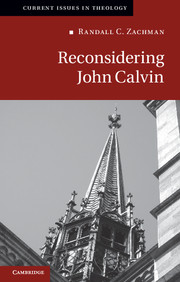Book contents
- Frontmatter
- Contents
- Abbreviations
- Introduction
- 1 The beauty and terror of the universe
- 2 The bond and critique of all social union
- 3 The one elect people of God
- 4 The restoration of Israel by gospel and law
- 5 The comfort and the challenge of love
- 6 Hoping for all others, fearing for myself
- Conclusion
- Index
- References
2 - The bond and critique of all social union
John Calvin and Søren Kierkegaard on the image of God
Published online by Cambridge University Press: 05 June 2012
- Frontmatter
- Contents
- Abbreviations
- Introduction
- 1 The beauty and terror of the universe
- 2 The bond and critique of all social union
- 3 The one elect people of God
- 4 The restoration of Israel by gospel and law
- 5 The comfort and the challenge of love
- 6 Hoping for all others, fearing for myself
- Conclusion
- Index
- References
Summary
In the last chapter we examined the image of God in Creation, especially the image of God in the heavens, and now in this chapter I want to consider Calvin’s thoughts about the image of God in humanity. Calvin gave a great deal of thought to this issue, and it is one of the issues on which he changed his mind considerably during his career. He was very interested in this issue from the very beginning. There were other theologians at the time, like Martin Luther, who were not all that interested in the image of God in human beings. So this is a distinctive theme in Calvin that he pursues his whole life. We will be exploring how he describes this image and the role it plays in undergirding or supporting our love for one another and especially our love for the enemy. This chapter will focus on the love of the enemy in particular but also the love of all other people as kind of a litmus test.
To begin with Calvin’s original position on the image of God, which remains throughout his whole career, Calvin insisted that every human being was meant to be created in the image of God, and of course Adam and Eve were the original exemplars of this image. By this he meant that human beings shared in a superlative way in the powers of God about which I spoke in the previous chapter. So we were like God more than any other aspect of Creation. We shared in God’s goodness, we shared in God’s life, we shared in God’s wisdom, God’s power, God’s justice … and so if Adam had persevered in this image, Adam would have ascended from temporal life to eternal life without experiencing death. Death for Calvin, then, becomes the major sign that the image of God has been fundamentally altered and distorted. So humans shared in the powers of God, which really express the nature of God, and they were meant by that sharing to strengthen these gifts more and more within themselves, to become more and more like God, so at the end of time, they might actually pass from time to eternity and be united to God. This remains the goal of human life for Calvin throughout his career. Human beings were created to be united to God, and we are united to God by becoming like God in God’s image when we see God face to face. He says, “The highest human good is therefore simply union with God. We attain it when we are brought into conformity with his likeness.” When we become more and more like God we become more and more united to God until finally we are united to God completely.
- Type
- Chapter
- Information
- Reconsidering John Calvin , pp. 35 - 61Publisher: Cambridge University PressPrint publication year: 2011

